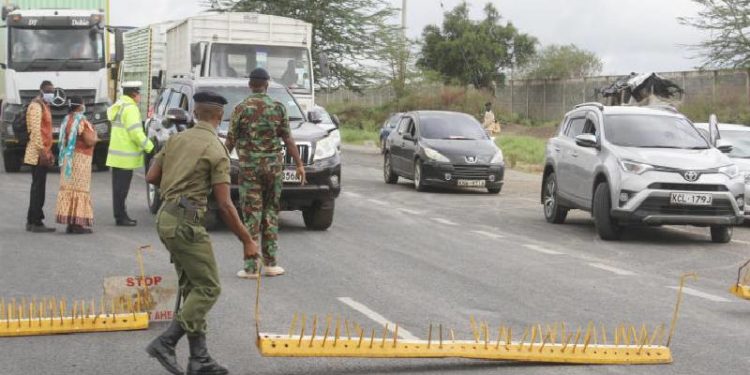The escalating number of road accidents and rampant corruption within the traffic control system have become pressing issues demanding immediate attention.
The government has taken steps to address these concerns by reallocating a significant portion of traffic police officers to general duties and empowering the National Transport Safety Authority (NTSA). This shift signifies a crucial move towards mitigating the challenges faced by the country’s road infrastructure.
Over recent years and months, the frequency of road accidents has surged, resulting in a disturbing number of fatalities and injuries. A key contributor to this crisis is the widespread culture of corruption among traffic officers.
Rather than prioritizing road safety, many officers engage in soliciting bribes, undermining the effectiveness of traffic management efforts and posing serious risks to public safety.
Transport Cabinet Secretary Kipchumba Murkomen has emphasized the urgent need for comprehensive reform in traffic control operations.
By reassigning traffic officers to broader duties and strengthening the authority of the NTSA, the government aims to promote integrity and accountability within the realm of road policing while placing a heightened focus on accident prevention.
However, achieving meaningful change requires more than just reshuffling personnel and reallocating authority. One fundamental aspect that requires immediate attention is the establishment of a robust and transparent data collection and management center.
Such a center would serve as the foundation for gathering credible information necessary for informed policymaking and effective enforcement strategies.
Accurate and reliable data concerning road accidents, traffic violations, and enforcement actions are essential for identifying trends, pinpointing high-risk areas, and evaluating the impact of interventions.
Moreover, transparency in data management fosters public trust and confidence in the regulatory framework governing road safety.
To address these challenges effectively, investments in advanced technology and data infrastructure are crucial. Embracing modern data analytics tools and establishing stringent protocols for data collection, validation, and dissemination can streamline information management processes and enhance data integrity.
Furthermore, fostering collaboration among government agencies, law enforcement bodies, and civil society stakeholders is paramount. A coordinated approach to data governance and sharing ensures interoperability, minimizes duplication of efforts, and maximizes the impact of road safety initiatives.
In conclusion, the ongoing reform efforts aimed at revamping Kenya’s traffic control system hold immense promise for enhancing road safety and combating corruption.
However, the establishment of a robust data collection and management center stands as a critical element in ensuring the credibility and effectiveness of these reforms. By prioritizing transparency, accountability, and collaboration, Kenya can pave the way for a safer and more resilient transportation landscape.















